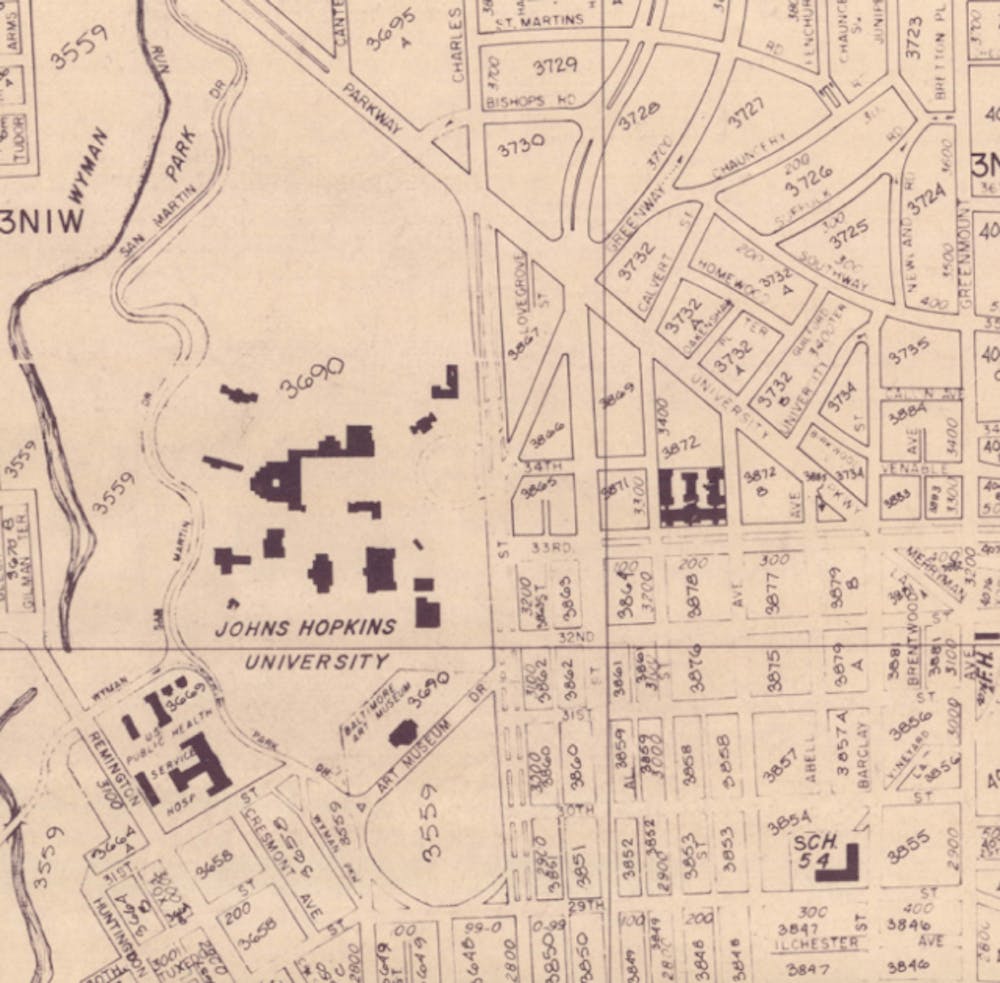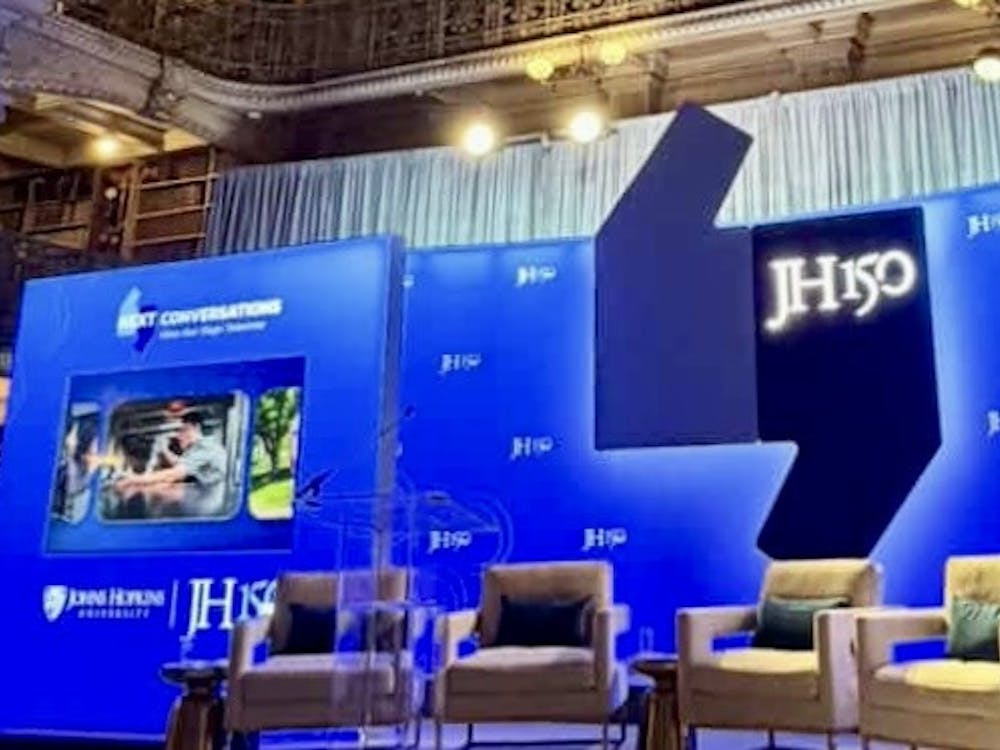Last month, Hopkins announced the end of its “Rising to the Challenge” fundraising campaign, which solicited over $6 billion in donations over the past eight and a half years. It seems like this money is going to a lot of good causes like financial aid, hiring new professors and new research projects. The generosity of plutocrats and commoners alike made this possible.
We all love the warm, fuzzy feeling of supporting the pursuit of learning but getting a charitable donation tax deduction from the IRS might be even better. Unfortunately, this is not an article about warm fuzzy feelings. It’s about taxes and the consequences when Hopkins and its donors (legally) avoid paying them.
“More income for you.” That is one slogan that appeared on the designated Hopkins “giving” website. My parents taught me that it’s rude to give with the expectation of receiving something in return. But through something called a “charitable gift annuity” (CGA), Hopkins encourages quid pro quo philanthropy.
With a CGA, you give Hopkins a minimum of $10,000 and then they invest it (maybe in fossil fuels?). All the dividends and interest payments from that investment go back to you as yearly “income,” and you also get a massive tax deduction. So by “giving,” you end up making money. The University then takes control of the donation/investment when you die which is why only people over the age of 60 are eligible for CGAs.
Naturally, this is a useful way for the wealthy to hoard their wealth. CGAs are perhaps the most egregious example of donors “receiving more than they are giving,” but Hopkins also advertises other contributions like stocks and real estate as ways for donors to minimize taxes — ahem, I mean “to be tax efficient.”
The University’s 501(c)3 nonprofit status with the IRS designates it as a “tax exempt” institution, which means that donors aren’t taxed for their contributions and Hopkins itself doesn’t have to pay municipal, state or federal taxes. And why should it? Hopkins isn’t explicitly looking for “profit” and the University brings jobs and opportunities to Baltimore. However, in the world of local government, where property taxes make up a significant chunk of Baltimore City’s revenue, Hopkins can seem more like a burden than a benefit.
In 2014 data, the assessed value of all property in Baltimore was $49.1 billion. 31.6 percent or $15.5 billion of that property — government buildings, hospitals or schools like Hopkins — was nontaxable. If those properties were taxed, some estimate that the City would receive an additional $348.5 million in revenue, which is more than the City’s 2017 budget for public schools and the public health department combined.
Because of this gap, Hopkins, along with other private universities and hospitals in Baltimore, worked out an arrangement with the City called “payment in lieu of taxes” (PILOT). In the wake of a 2010 City budget crisis, this group of private universities and hospitals agreed to pay $20.4 million to Baltimore over the course of the next six years in exchange for a promise that the City wouldn’t raise their taxes.
Of that $20.4 million, Hopkins paid half and praised itself for stepping up to serve the City it calls home. Others who call Baltimore home, like City Council Member Zeke Cohen, disagree and say that these PILOTs don’t come close to paying for the city services that Hopkins uses.
It’s true that the PILOT program was not intended to close the revenue gap from tax-exempt property. But $20.4 million over the course of six years covers a dismally negligible fraction of the aforementioned $348.5 million from just one year of foregone tax revenue.
Critics may say I am comparing apples to oranges here and given the lack of specific available data, I admit that. But at the end of the day, they are still both fruit and Baltimore is a cash-strapped city lacking in public services.
In his “Rising to the Challenge” victory letter, University President Ronald J. Daniels wrote about how the University has been able to invest in the Henderson-Hopkins Elementary School and Eager Park, a land development project part of the East Baltimore Development Inc. (EBDI) meant to combat urban blight that resulted in the displacement of predominantly black Baltimoreans from their homes.
Schooling and housing have historically been part of the government’s responsibilities. However, over the past decades, state and federal funding for social services has shrunk nationwide in the name of tax cuts and “free” market ideology. When markets fail to replace those services, large nonprofits like Hopkins step in with what they call expertise and rhetorical goodwill to shape change how they and the other beneficiaries of this system see fit.
Even beyond lawful tax avoidance, Hopkins has pursued strategies that fall in grayer legal categories. Last year’s Paradise Papers scandal revealed that Hopkins, along with many of the world’s elite and powerful, used offshore accounts to hide their assets from tax collectors.
No one likes paying taxes, and it is understandable why Hopkins and its big donors take advantage of the current rules. However, their “tax efficient” tactics are directly related to the decline of public sector services that causes and exacerbates many problems Hopkins seems so keen on tackling.
Paying taxes is a means of civic engagement that signifies our participation in a democratic system. As wasteful or corrupt as people accuse the Baltimore City government of being, we shouldn’t abandon it through privatization or tax exemptions. At the end of the day, the government is still held accountable to its citizenry through elections. The same cannot be said for the University, which likes to espouse the rhetoric of facilitating civic engagement without bearing the cost.
When private institutions like Hopkins take on roles that the government used to fill, Baltimore is held hostage to what Daniels calls his “enlightened self-interest” as the University pursues projects outside its educational mission like neighborhood “revitalization” or a private police force.
So before you donate to Hopkins to feel like a good person or for that tax deduction from the IRS, consider where your contributions go and who they empower in Baltimore: its citizens or its private institutions?
Rollin Hu is a senior history major from Boxborough, Mass. He is the former Editor-in-Chief of The News-Letter.





